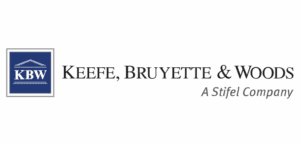How much is collision insurance in North Carolina?
How much is collision insurance in North Carolina?
NORTH CAROLINA AUTO INSURANCE PREMIUMS BY COVERAGE TYPE Coverage Level Average Yearly Rate $50K/$100K/$50K Bodily Injury/Property Damage — $500 Comprehensive/Collision $798 State Minimum — Liability Only $351 State Minimum — $1,000 Comprehensive/Collision $697 State Minimum — $500 Comprehensive/Collision $755 5 more rows • Jan 5, 2022
What happens if you drive without insurance in NC?
Driving without it is considered a Class 1 misdemeanor, which means you could be on the hook for a number of penalties. If you’re caught driving without car insurance in North Carolina, the state may choose to suspend your driver’s license, charge fines ranging from $50–$150, or require jail time. Oct 20, 2021
Does car insurance go down after 6 months?
While turning 25 doesn’t guarantee a reduction in your premiums, 25 is the age when many insurance companies reduce the amount younger drivers pay. Even past the age of 25, your insurance premiums tend to go down as you get older, so checking every six months can still save you money. Feb 18, 2022
Is NC a no-fault state?
Because contributory negligence makes it difficult to claim another driver was at fault for an accident, you may assume North Carolina is a no-fault state. In fact, North Carolina is an at-fault state for car accidents.
Does insurance follow the car or driver in North Carolina?
North Carolina car insurance policies follow the car and not the driver. So, if anyone driving a friend’s car causes an accident and injures anyone else, the first course of action would be to follow the car’s owner’s policy. May 17, 2021
Can my son drive my car if he is not insured?
Most insurers cover someone else driving the policyholder’s car with their permission once in a while. But, if you’re going to start driving one of your parent’s cars regularly, you’ll need to be added or named on their auto insurance. You can’t legally drive your parents’ car without any insurance at all, either.
Can I put insurance on a car that is not in my name in NC?
Generally, no. A person cannot get an auto insurance policy on a car that they do not legally own unless they can prove to the insurance company that they have an insurable interest in the vehicle. Jul 5, 2021
What happens if someone else is driving my car and gets in an accident in NC?
If you let someone borrow your car and they cause an accident in North Carolina, bodily injury liability insurance pays for injuries to the other driver and their passengers. Property damage liability insurance will pay for damage to the other driver’s car. Apr 24, 2020
What is the purpose of D&O insurance?
Directors & Officers (D&O) Liability insurance is designed to protect the people who serve as directors or officers of a company from personal losses if they are sued by the organization’s employees, vendors, customers or other parties.
What is D&O and E&O insurance?
Directors and officers coverage and errors and omissions coverage—types of liability insurance that, for mutual fund insureds, are frequently combined into a single “D&O/E&O” policy—protect individuals and entities against the financial impact of judgments, settlements, and legal defense costs incurred in certain …
Do you need D&O insurance?
Having A D&O Insurance Plan Is Not Compulsory While a large number of businesses make use of D&O insurance plans, it is not always a necessity. Businesses can avoid getting it if the expense exceeds their needs. Moreover, public businesses are more likely to opt for it, as they have bigger risks to handle. Oct 8, 2018
Is D&O insurance deductible?
You may deduct the cost of insurance. This would include liability insurance, workers’ compensation insurance, directors’ and officers’ insurance, and property insurance, covering assets such as your trucks or building.
What is E&O?
What is E&O insurance? E&O insurance is a kind of specialized liability protection against losses not covered by traditional liability insurance. It protects you and your business from claims if a client sues for negligent acts, errors or omissions committed during business activities that result in a financial loss.
Who does a D&O policy cover?
Directors and officers (D&O) liability insurance protects the personal assets of corporate directors and officers, and their spouses, in the event they are personally sued by employees, vendors, competitors, investors, customers, or other parties, for actual or alleged wrongful acts in managing a company.
Are D&O and E&O the same?
D&O is there to protect high-level decision makers when someone asserts they were negligent in their duties as an officer or board member. E&O, on the other hand, covers acts, errors, and omissions committed by employees of the company.




